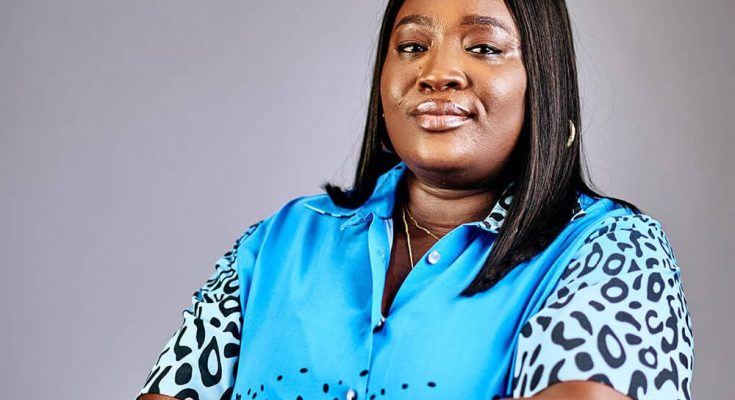The CEO of Miimanu fashion, a global label renowned for its unique designs and styles, Juliana Songu, a Sierra Leonean in this interview told KEHINDE OSASONA how it all started, challenges bedeviling the industry, motherhood, and what Nigeria and her country can do to harvest from the multi-million dollar global fashion industry.
Why did you decide to choose fashion designing as a career?
I think the love for fashion got me into this. My passion too and I have this mentality that I wanted to be spotted from a far and it worked for me.
I did my first degree in Geology but later in life, I considered going into the fashion designing business. It all started in Ghana where I studied fashion designing and did my internship in Nigeria.
I started fashion officially around 2011 and have been in the industry for fifteen years now, have my own fashion house with a good team back home and a mini-factory in Nigeria. God’s willing I have been able to create a balance by juggling motherhood with fashion business over the years amidst little challenges.
What does fashion mean to you?
I think fashion is what you feel inside and how you intend to communicate it. More like how you want to appear, your mood, styles and more importantly your styles.
Cuts in….What then is the inspiration for you?
My immediate environment of course I would say. For instance, I am not an abroad fashion freak. I am that traditional African girl that is why I work with a lot of heritage fabrics and stuff because I don’t know much about abroad. But if you ask me, Africans are really doing much and going places.
For Africa, I like Christie Brown from Ghana, the Lady maker because I see a lot of contemporary African designs that I do in her work.
Cuts in…Really? Yes
And that to some extent differentiate Miimanu from other fashion brands. I try telling stories with my style using my family, my clients and all that. So, I have carved a niche for myself and that inspires me a lot.
Like what I am wearing, I started building it from scratch. I will send the design to a factory in Abeokuta, get the factory sample and I will produce. So, it does not matter where I am; from using flowers, sketching, having my diary in my bags to taking down notes, using junks of books I can tell you that our inspiration is around us.
So, I will say I communicate to them through my designs. In all, my African background is a factor coupled with what I see alot of other designers that are really doing well across Africa.
When you go out into the world or attend fashion shows or runways and see how celebrities abroad put on African fabrics, it means they are accepting what we are doing and it means the industry in Africa is going global which gives us a lot of satisfaction.
What stood you out among other brands?
Like I said earlier, it is my fabrics. It is everything and my clients and customers alike also tell me. And it is not just about the design but also the texture and I keep giving them what they want. Not a wash and wear kind of thing but unique stuff, something that is going to be generational and would be in their closets for a very long time.
I think they must have value for their money. Come to think of it, this is what they are going to have to keep for over a decade. That’s exactly how I handle my customers.
Have you ever thought of delving into male designs?
I think in a couple of years, I would think of doing something like male designs. I have had to make some stuff like that on a very low scale for gifts. We did normal clothing in a simple style.
We particularly did some male design for men, shirts and all that and it worked. So, I normally blend the male design with the kids together. We will try and see how it goes especially in Nigeria.
How about challenges in the industry?
As Africans the challenge has always been mostly power, especially for designers like us. Our factory needs constant electricity. All we use there needs to be powered by electricity. You see that.
Then there is the pollution issue. It has also been very disturbing and challenging. Like they say, anywhere there is no electricity, there is no business. Again, getting good fabrics and quality ones at that is also worrisome.
The fashion business is evolving and gradually becoming a multi-million dollar hub, how do you think African designers can get their cut from the largesse?
We are getting a cut but we need to marry business with creativity. The truth is I did struggle with that a lot. I was focusing the creativity part but left the business angle.
Business is different from creativity. When you have your business structure and you have a sustainable business designing outfit, you will have your cut.
When you create, and don’t know business, you might not get there or benefit from the industry. Because you won’t know what to charge or how to position the business and at the end of the day it becomes discouraging and you won’t be able to tap into the fashion benefits that abound.
I think I was fortunate to be among some SMEs that partnered with the government of Sierra Leone and World Bank where we were trained as entrepreneurs where we were taught on how to differentiate the business from the creativity in order to tap from opportunities. It was a game changer for me who helped position me and today; I am tapping from the global multi-million dollar fashion business.
What are your future projections going forward and is Miimanu brand looking at Nigeria/Sierra Leone collaboration in a distant time?
We are taking our brand to the globe and different parts of the world. We just want to tell our stories. We want to see people from West Africa embracing our Miimanu brand, a brand identity that is known in different parts of the country.
As for the other question, the fashion designers union is working in that direction to bridge all those gaps. Like I said earlier, I am billed to attend a fashion show in London and Paris which would provide an avenue to still discuss regarding that.
But I must tell you this; we do a lot of trade now. Like in Nigeria, we do a lot of trade and inter-trade now as a way of bringing Africans together.
We take country clothes down here and take the ones from Nigeria to my country and with time, I am even thinking of switching designers. So, collaboration is possible with time.
Any words for an upcoming fashion brand?
I always tell young fashion designers to love what they are doing. They should be ready to take the low and the high especially if they don’t know the business aspect of it. They should be sure of what they are doing; they should carry out research, build a strong team and set up a system that is long-lasting.
Designing I always say is not just about cutting and sketching cloth, watching podcasts, and studying. In short, there is a lot involved now.




